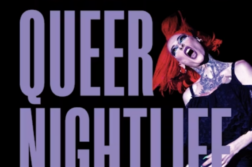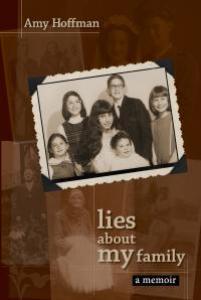 Lies about My Family: A Memoir
Lies about My Family: A Memoir
by Amy Hoffman
University of Massachusetts Press.
150 pages, $22.95
Amy Hoffman, currently editor of The Women’s Review of Books, worked at Boston’s Gay Community News (GCN) in a variety of capacities, including editor, during the late ’70s and early ’80s, an era well documented in her 2007 memoir, An Army of Ex-Lovers. Lies about My Family closes around the time she began college, with a coda about her Provincetown wedding to her long-time girlfriend. She spares only a brief few pages for coming out: “In my early twenties I dated a lovely Jewish guy—yes, a guy. I wanted to be a lesbian, but none of the women I had crushes on would even look at me, which is not surprising since I did nothing to let them know my feelings.” Feelings were not the easiest emotion for this family. For almost two decades, neither parent talked to anyone about Amy, their oldest child. “My life was a secret they kept,” says Hoffman, because “for my parents [even though they were non-believers], a lesbian could never be a good Jewish daughter.” She says she knew that she’d never have children, and describes herself as having done a lot of mothering of her siblings (two boys and three girls), but was “never much good at it.” This memoir is meant to be a family history, told through interviews with elderly relatives, and the recounting of long-remembered, sometimes contradictory, family stories. Her forbears left the Old Country for reasons ranging from persecution (those who didn’t flee when they could were all lost in the Holocaust) to the sheer adventure of getting out of town. Although it becomes impossible for the reader to disentangle the great-greats and the cousins- by-marriage, there are in this slender volume some wonderful stories, sure to resonate with almost anyone who is a second- or third-generation American.
Martha E. Stone
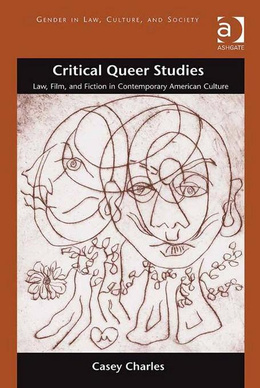 Critical Queer Studies: Law, Film, and Fiction in Contemporary American Culture
Critical Queer Studies: Law, Film, and Fiction in Contemporary American Culture
by Casey Charles
Ashgate. 216 pages, $99.95
This book is part of a series on the connections between law, gender, and cultural politics. In this thoughtful study, Casey Charles, professor of English at the University of Montana, looks at the ways in which contemporary films and literature influence and are in turn influenced by GLBT law. According to Charles, the messages promulgated by these works remain deeply problematic. He contends that the GLBT subject persists as a tragic scapegoat, an object of scorn who is ultimately sacrificed by the community, a victim of society’s intolerance. Contemporary culture continues to dramatize the conflicts between heteronormativity and queer identity, he argues, through tragic narratives that deny and stigmatize queer culture. To develop his argument, Charles explores five dramatizations of tragic queer narratives and their legal implications in our modern culture, notably The Times of Harvey Milk, Brokeback Mountain, and Boys Don’t Cry. Charles calls for a new movement toward equality and justice, arguing that both artists and legislators must move beyond seeing GLBT people as victims and instead participate in a “poetics of the unrepressed.”
Jennifer Lodine-Chaffey
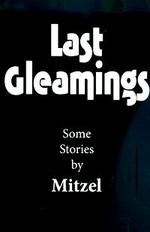 Last Gleamings
Last Gleamings
by John Mitzel
Calamus Books. 200 pages, $15.95
A major presence in Boston’s gay community for many years, John Mitzel’s latest work is a collection of thirteen short stories set in Boston in the waning decades of the 20th century. Written with a less vitriolic edge than his most recent two novels—the real estate hell of Inferno Heights and the literary time travel of Doubly Crost (both 2009)—there is a good deal of gracious prose and irony-free recollection: “[The] world was always young in the 60s and every day offered magic.” But there are still some hard edges: The story “Doctor Acid and the Deep Mine Diva,” about a restaurateur-turned-theatrical-impresario, ended with his death and cremation, after which the ashes were taken to the “Palace Cinema” in the Combat Zone and amid “a rather large orgy, the ashes were sprinkled over the orgiasts.” Several other stories are about the funerals of gay men lost to AIDS. In “Collectables,” one mourner remembers the deceased as a bowler. Not so, said another mourner. “Tom’s idea of sport was Olympic embroidery.” Some particulars of the difficult life of Siong-Huat Chua, who came from Malaysia to attend MIT and died in 1994, are recalled in “Chua’s Story.” (Chua was a founding member of the first gay Asian organization in North America.) Mitzel, who edited the monthly gay newspaper Fag Rag, worked as a projectionist at one of Boston’s porn houses, managed Boston’s Glad Day Bookstore for many years, and currently owns and runs Calamus Bookstore, may one day publish his memoirs. Until then, Last Gleamings provides a vivid preview.
Martha E. Stone
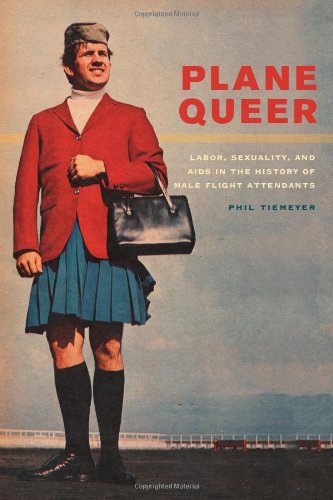 Plane Queer: Labor, Sexuality and AIDS
Plane Queer: Labor, Sexuality and AIDS
in the History of Male Flight Attendants
by Phil Tiemeyer
University of California Press
302 pages, $24.95
The title and subtitle of Plane Queer: Labor, Sexuality and AIDS in the History of Male Flight Attendants might suggest a specialized piece of scholarship about a small subset of workers. But author Phil Tiemeyer ends up telling a larger story about how men gained parity in occupations traditionally dominated by women. Male “stewards” had to face the consternation that often confronts those who break gender stereotypes, and they were at the forefront of the struggle to end discrimination against men entering non-traditional professions. That these battles were often fought by gay men is very much a part of the story. Tiemeyer also spotlights the amazing and often heartbreaking struggles waged by gay male flight attendants at the height of the AIDS epidemic in the 1980s and ’90s, when their jobs—and their dignity—were often on the line. Meticulously researched, Plane Queer offers a searching analysis of gay life during this era, stopping to profile some of its heroes, notably Randy Shilts, author of And the Band Played On. Tiemeyer ponders the role of social policy and the expansion of Title VII that did so much to increase opportunities for both men and women, and concludes that gay-friendly corporate policies alone cannot overcome cultural and structural barriers to workplace parity.
Andrew E. Stoner




